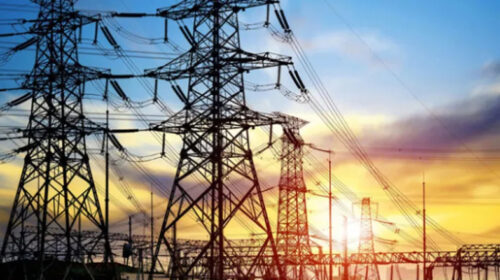With only three days left to end differences, Prime Minister Shehbaz Sharif on Monday gave a go-ahead to increase electricity prices aimed at striking a deal with the International Monetary Fund (IMF), which may further push the annual base tariff up by about 33%.
The decision in principle was taken in a meeting held at the Prime Minister House after the IMF did not budge from its earlier stance that Pakistan will have to honour its past commitments. The premier chaired the meeting online, as he was in Lahore.
There might be on an average Rs7.74 per unit increase in the base tariffs but the surge for the upper consumption slabs will be much higher, according to the sources privy to the discussions.
The premier still wanted the Power Division to win back some of the space by convincing the IMF to agree to lower than the demanded increase.
After the PM’s approval, the revised circular debt reduction plan will now be shared with the IMF on Tuesday (today), carrying the details of the increase in prices on account of quarterly and annual base tariff adjustments, said the sources.
Power Minister Khurram Dastgir did not comment on whether the PM agreed in principle to increase the prices with a maximum increase for the upper category of consumers.
The IMF is demanding about a 50% increase in prices but the government wanted to raise the prices in the range of 20% to 33%, according to the sources. The talks had begun on January 31st and the mission was in Islamabad till February 9th.
The IMF says that it is in Pakistan at the request of Prime Minister Shehbaz Sharif, expecting the government to implement all its outstanding actions, including an increase in taxes.
In case the IMF agrees to the measures that the government now stands ready to take, a meeting between Finance Minister Ishaq Dar and IMF Mission Chief Nathan Porter might take place the same day to give final shape to these measures.
Read ‘Tough’ IMF talks push rupee to Rs276.58
The sources said that the Power Division presented various options to the PM for increasing tariffs. These included a Rs4.26 per unit increase in quarterly tariffs and a Rs7.74 per unit average increase in the base tariff.
However, the IMF has demanded that the government should increase the electricity prices by over Rs12 per unit to completely offset the Rs675 billion demand for additional budget subsidy. The Power Division is of the view that it can still recover Rs43 billion with a lag from July to December 2023, which should minimize the need for an increase by the same amount.
At the time of the budget, the government kept only Rs355 billion in power subsidies for the current fiscal year. In order to manage the flow of the additional circular debt, the Power Division sought Rs675 billion in more subsidies, bringing the total needs to over Rs1.03 trillion.
It was discussed in the meeting that the delayed decision-making has further increased the cost of reviving the IMF programme. The government still hoped that the IMF would consider absorbing some increase through subsidies. But these subsidies will have to be backed by additional revenue measures.
The IMF also did not agree to the government’s demand to spare up to 300 units for consumers from the increase in prices, as it remained consistent on increasing the prices for people having consumption of 200 units and more a month.
Read more IMF programme: choices amongst alternatives
The PM instructed that the maximum increase should be passed on to the people having higher consumption levels. But even people with higher consumption do not have the ability to bear the additional burden, particularly caused by the politically motivated decisions to give subsidies to exporters, provide less than demanded subsidies in the budget and inefficiencies of the power sector.
The sources said that the PM still wanted the continuation of the exporters’ electricity subsidy package but there were few chances that the IMF would agree to it in its present shape.
The sources said that there was a possibility to increase the annual base tariff by Rs7.74 per unit or over 33% to address the IMF’s concerns. The average base tariff is around Rs24 per unit, which may jump to nearly Rs32 per unit by June. In case, the IMF agrees to another option
It will be the second increase in the current fiscal year after the government has already increased the base tariff by Rs7.91 per unit under the IMF deal. The increase is not helping to stem the losses but forcing people to shift to an alternate source of energy.
Earlier, the Power Division had submitted the revised CDMP, which revealed that a staggering Rs952 billion more would be added to the circular debt without increasing tariffs.
It has been proposed that in addition to the annual base tariff increase, the government will impose three separate quarterly tariff adjustments, ranging from 69 paisas per unit to Rs3.21 per unit from February to May this year to reduce a gap of Rs73 billion.
The first surcharge of Rs3.21 per unit will be imposed from this month, the second 69 paisa per unit from March and the third Rs1.64 per unit from June, said the sources.
A government official said that the IMF was also seeking a detailed plan for bringing policy reforms in the power sector.
The sources said that there was still some possibility that the gas tariffs will have to be increased to address the flow of the circular debt in the gas sector. They clarified that the gas prices increase on account of the stock of the debt might not come immediately.







